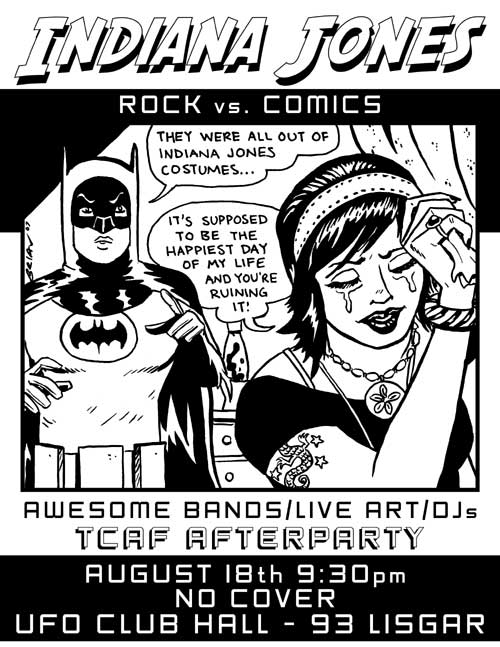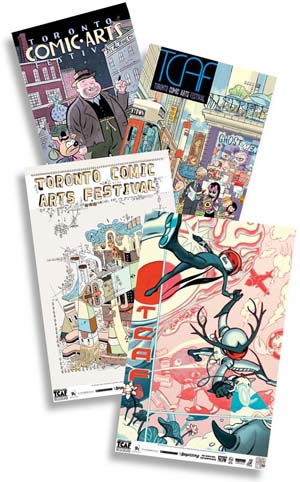(I lied about not posting about comics issues for a few days, I had to get this off my chest.)
In response to the Zuda Card that was being given away in San Diego, the one that had a little bullet-point that said “ZUDA CREATORS WILL RETAIN THEIR COPYRIGHT!” and their website even has an updated statement that says as much. It also says that the work will be published “…under fairly conventional publishing agreements…” which is what you really need to pay attention to.
First and foremost, DC Comics may be benevolent enough to grant you the copyright to your own work, but they haven’t said anything about the Trademark (basically, the title of the work). Trademark is interesting, it’s why the KRAZY KAT collections that Fantagraphics are doing are called Krazy & Ignatz and why the GASOLINE ALLEY collections that D+Q are doing are called Walt & Skeezix. The copyright on those early works may have fallen into the public domain, but the titles (marks)Â used in business (trade) haven’t, and are still owned by the syndicates. So does Zuda own the trademark to your series, or do you?
Secondly, “…fairly conventional publishing agreements…” is what keeps WATCHMEN and V FOR VENDETTA in print at DC Comics against their creator’s wishes. You can own the copyright to the work, as Alan Moore and his collaborators do, but those “…fairly conventional publishing agreements…” could say pretty-much anything. Moore’s says that the publishing rights for WATCHMEN only revert to him once the book is out of print for a set period of time. That book will never be out of print, so for all intents and purposes he’ll never have control of that project again. Could you live with that? Your work generating massive ammounts of income for a company that you feel both personally and professionally wronged you (and continue to do so to this day)?
Everyone knows the Alan Moore story, so here’s one that’s more personal. A few years back I was hired to completely re-colour SKREEMER, a six-issue limited series originally published by DC, and written by Peter Milligan with art by Brett Ewans and Steve Dillon. Scott Brown at Cyberosia worked out a deal with Milligan and Ewans and was going to publish the long-forgotten (but ahead-of-its-time) series as a graphic novel. Retro-sci-fi-gangsters in the future, it woulda been fun. I turned in four or five pages of colours that were approved (and looked pretty sharp if I do say so myself). All of the sudden, DC steps in and says “What? No, we’ve been planning to do a trade paperback of this for a while now!” Now, I can’t legally say that they’re liars, but everyone involved with the project at Cyberosia (including the legal authors of the work) were… under a different impression. You see, if they announce their intention to reprint the series, that ‘counts’ and the publishing rights don’t revert to the authors, as specified in their contract, despite the fact that Milligan and Ewans “own the copyright”. Four or five months later DC releases a SKREEMER collection, pretty obviously rushed out the door, and in their next special sale to retailers they also offer a substantial discount on that trade paperback to try and move some copies out the door too. In short, they didn’t particularly care about the project, they heavily discounted the book to retailers less than a year later, they just didn’t want to lose their rights to the IP (intellectual property-ancilliary rights like movies, tv, action figures, etc)Â (they’re in the movie-business, donthcaknow?).
How’s that for your fairly standard publishing contract?
Here, I’ve got two more things for you. The first is a very good publishing industry blog called EDITORIAL ANONYMOUS. It’s written (anonymously, of course) by an editor in the Children’s Book industry, and is a fantastic source of information on publishing and particularly contracts and rights assertion. Seeing an Editor admit (paraphrasing)Â “yeah, our standard contracts are pretty terrible, no one should sign them if they don’t feel comfortable, HIRE A LAWYER” will quite likely be an enlightening experience for you. Publishing corporations do not have your best interests at heart, they have THEIR best interests at heart, because they’re corporations and that’s what they’re legally obligated to do. So, if you’re curious about the big bad world of publishing, spend some time on that blog there and find out what it’s really like, particularly before you go and sign a bad contract (or compete for the chance to sign a bad contract).
The second thing I’ve got for you is… Scott Kurtz. I don’t particularly like Scott Kurtz, he goes out of his way to say some stupid, hateful things (and in the most obnoxious way possible). I am… reticent… to even link him at all. But what he’s just said recently on his blog about the Zuda/Platinum/”American Idol” style of “breaking into comics” is incredibly relevant and correct. You, as a comics creator, are not a “contestant” for your own success:
“We are NOT contestants. You don’t need to “win†your success in some foolish contest where a media corporation dangles a contract over your head. You are a creator. You may not have much, but the one thing you do have (maybe the ONLY thing you do have) is the internal spark that allows you to create a character or a universe out of thin air. If the one thing you have is the dignity of being a creator, why would you give that one thing away so eagerly?”
– Scott Kurtz, PvP
It ties into my thoughts on other, similar projects (whether corporation-driven or fan-driven or whatever) and I think it’s worth reading for all the creative folks out there, if for nothing else than a reminder that what you do is important and has value, and you shouldn’t be quite so free to give it up for “fairie gold”.
Now, back to work.
– Christopher
 What’s going on today? Paul Pope (vis a vis his appearance at this weekend’s Toronto Comic Arts Festival) is on the cover of Toronto’s Eye Weekly this week, generating some lovely coverage for the event. In a the feature interview by Chris Randle, Pope starts off with “A brush is like a guitar,” so you know what you’re getting.
What’s going on today? Paul Pope (vis a vis his appearance at this weekend’s Toronto Comic Arts Festival) is on the cover of Toronto’s Eye Weekly this week, generating some lovely coverage for the event. In a the feature interview by Chris Randle, Pope starts off with “A brush is like a guitar,” so you know what you’re getting.





 TCAF PARTY: SONGS & PICTURES
TCAF PARTY: SONGS & PICTURES
 Hey there. A fun little interview I did with Toronto Foodie Blog TasteTO just went online at
Hey there. A fun little interview I did with Toronto Foodie Blog TasteTO just went online at  Who doesn’t love a contest? As part of a promotion I set up with Toronto’s
Who doesn’t love a contest? As part of a promotion I set up with Toronto’s 

